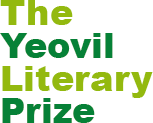Six years in and the entries still keep coming! 2009 was another bumper year for entries: more than a thousand for us to look at. All the judges were impressed by the wealth of talent that the competition has revealed. Selecting the short lists to send to the judges is becoming a challenging and time-consuming job. It is also full of delightful surprises. The online entry system seems to be working well now, although we have no plans to disenfranchise the third of you who prefer to enter by post. Our international reputation seems to be expanding: entries arrived from the USA, Cyprus, Africa and France (to locate but a few of our international entrants) as well as from our many loyal UK supporters.
The Novel category is always a challenge because, on the whole, you are submitting unfinished material, and we only see the opening of your work. But you all know it’s possible to tell from the first 15000 words (sometimes from the first 1500) whether or not you want to go on to read the rest of the book! As someone with several years’ experience as a school librarian, I was delighted to discover a number of children’s novels among the entries. Children are a demanding audience who can cope with tough topics and thought-provoking material but who will also scorn anything that seems to ‘write down’ to them. Although none of these children’s books made it to the prizes I was impressed by them and look forward to the day when we have a winner from this genre. And what a lot of genre fiction there was! Fantasy and crime and historical novels were all strongly represented. The fantasy tended to lack real conviction but two of our prizewinners came from among the historical entries. The same qualities are as important in genre fiction as in literary fiction: characterisation, originality, a sense of place, sharp plotting and, perhaps above everything else, an individual voice we want to hear more from.
Voice is perhaps even more central to Poetry. The best entries moved us and gave us images and feelings that have lingered in our minds. The mixture of emotion and discipline demanded by poetry is a challenge few can maintain – and then poetry stumbles into mere versifying. This happened in some of the entries but those that did well were exceptional. Carol Ann Duffy was ‘very impressed’ by the standard of the short list she received.
Rachel Billington, who judged the short story shortlist thought they all ‘showed flair and some good writing’. This category had a very wide range of quality in its entries. Some were disappointing, lacking real understanding of the demands of the form: it’s more than a ‘twist in the tale’ and it certainly isn’t a mini-novel. Those of you who understood this wrote some interesting stories which were a joy to read and deserve to reach a wider public.
We were very fortunate to have the support of three highly professional judges this year. Our thanks go to Katie Fforde, Rachel Billington and Carol Ann Duffy for their time, and for the thoughtful consideration of their judgements.
the Judging Team

